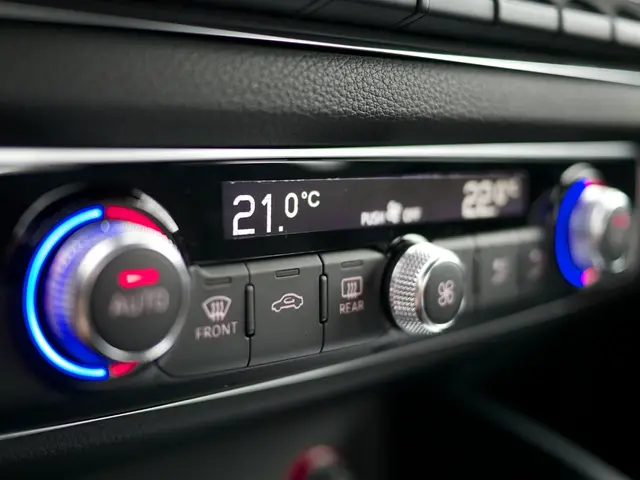"Dutch Cities Embrace Innovation: Reinventing Waste Disposal Systems"
In the ever-evolving landscape of urban development, the global market for smart cities is projected to grow significantly, with an estimated value of over 700 billion dollars currently and a predicted size of four trillion dollars by 2030. Amidst this growth, one company is making waves in the Netherlands: dataMatters GmbH.
The German-based firm specializes in the application of artificial intelligence in the real economy, with a focus on Smart City, Smart Factory, Industry 4.0, and more. One of their most promising projects is revolutionizing waste management, a concept that has already been partially implemented in Hürth, Germany, with about 200 out of 900 public waste bins being 'intelligent'.
Hürth, with a population of 60,000, is an example of a city that has taken a step ahead of New York in waste management. Dutch municipalities can now quickly catch up with this innovation. The Dutch market for smart cities is currently estimated at around 800 million euros; it is predicted to rise to over 1.25 billion euros by 2028.
The key to this waste management revolution lies in equipping waste bins with sensors that measure fill levels and transmit data to a city data platform. This platform, managed by dataMatters, serves as a central collection point for various types of data recorded via different sensors. Using artificial intelligence (AI), the city data platform determines the best route for waste trucks to empty the containers, potentially saving about 20 percent in costs and reducing CO2 emissions by about 30 percent.
Remarkably, Dutch municipalities can implement this concept without investing in a radio communication network. The radio technology used, LoRaWAN, is already available everywhere in the Netherlands, eliminating investment costs. LoRaWAN networks are also widespread in the Netherlands, making the implementation of dataMatters' concept possible in any Dutch municipality.
Dr. Daniel Trauth, director of dataMatters, asserts that connecting the real world with AI data centers can improve citizen services, reduce costs, and benefit the environment. He emphasizes that the challenges brought by urbanization can only be addressed with smart infrastructures and artificial intelligence. Dr.-Ing. Dipl.-Wirt. Ing. Daniel Trauth, founder of dataMatters, has received over 20 awards for his work in the field of real-world AI applications.
As the world's population continues to urbanize, with the United Nations predicting that about 60 percent of the world's population will live in urban agglomerations by 2030, the need for smart and sustainable solutions becomes increasingly urgent. dataMatters GmbH's waste management revolution is a promising step towards addressing this challenge, offering a model that other cities around the world can learn from and adapt to their own needs.
Read also:
- Summarized Report: Insights from the Realm of Transportation
- Recorded surge in electric vehicle registrations during the initial half of the year
- Polestar CEO, Lohscheller, voices concern on the ongoing debates about competitors' products: "Maintain focus, avoid distractions"
- London Mayor Sadiq Khan under fire for raising Congestion Charge, with drivers facing an additional £80 million in yearly costs








